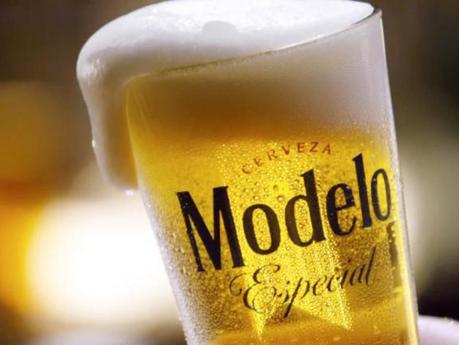
In a remarkable twist of fate within the American beer market, an unprecedented shift has captivated beer enthusiasts and industry insiders alike. For generations, Bud Light stood as the undisputed champion, reigning as the best-selling beer in the United States and a symbol of American brewing. However, a new contender emerged from the shadows, as Modelo Especial not only challenged Bud Light’s supremacy but boldly seized the throne as America’s top-selling beer. This monumental shift is a testament to the evolving palates of consumers, the prowess of marketing strategies, and the adverse consequences of fumbling advertising decisions.
Bud Light, the quintessential American classic crafted by Anheuser-Busch, was synonymous with refreshment for years. Its clean and crisp taste, coupled with a timeless marketing campaign spanning eras, etched its identity as an emblem of camaraderie, sports events, and easygoing gatherings. The resonant catchphrase, “The King of Beers,” echoed in the minds of beer enthusiasts across the nation. Yet, as the craft beer movement unfolded and consumers sought richer and more diverse options, the stage was set for a challenger to step into the limelight.
Enter Modelo Especial, a Mexican brew produced by Constellation Brands that artfully melded heritage with modernity. With a legacy tracing back to 1925, Modelo’s entry into the American market was gradual yet strategic. Its distinctive amber hue and subtly sweet flavor set it apart from the conventional light lagers that dominated the scene. Modelo deftly harnessed its Mexican roots, capitalizing on the burgeoning fascination with international tastes and experiences. Its premium stature appealed to consumers seeking a departure from the norm.
Central to Modelo’s meteoric rise was its genuine embrace of authenticity. In a world awash with mass-produced goods, consumers yearned for experiences steeped in genuine origins. Modelo’s marketing campaigns artfully celebrated its cultural heritage, whisking beer aficionados to the vibrant streets of Mexico and the rich tapestry it embodied. This authenticity not only deepened the beer’s allure but also fostered an intimate emotional connection with its audience.
Moreover, Modelo’s ascendancy owes much to its astute marketing strategies, which deftly harnessed the evolving dynamics of consumer behavior. Acknowledging the supremacy of social media and influencer-driven endorsement, Modelo engaged a younger demographic at the forefront of shaping cultural trends. Collaborations with notable influencers, complemented by visually arresting content, generated a palpable buzz around the brand, making it impossible to ignore. Initiatives like the “Modelo Time” campaign encapsulated the essence of taking a breather from life’s relentless pace to savor a moment of refreshment.
Modelo’s journey also mirrors a broader cultural transformation within the United States. As the nation grows more diverse and interconnected, people are more open than ever to embracing new flavors and global experiences. The craft beer movement, with its emphasis on distinct tastes and premium ingredients, had already laid the foundation for this evolution. By seamlessly weaving Mexican influences into its identity, Modelo rode this wave of change, affording consumers a tantalizing passport to worldwide flavors and experiences.
Another pivotal ingredient in Modelo’s victory was its uncanny ability to capture the spirit of celebration. Whether it was an impromptu gathering with friends, a weekend cookout, or a festive occasion, Modelo positioned itself as more than a mere beverage—it was an amplifier of shared joy. This positioning allowed it to transcend its beverage status and instead transform into a symbol of collective experiences and cherished moments, engraving itself deeply into the hearts of consumers.
However, the riveting twist in this saga revolves around Bud Light’s decline, largely stemming from a series of unfortunate marketing choices. While Bud Light had once been the beacon of consistency and familiarity, its marketing campaigns stumbled when they failed to adapt to evolving consumer preferences. The brand’s steadfast commitment to a formula that had thrived for years held it back from resonating with the desires of a swiftly changing consumer base.
In stark contrast to Modelo’s skillful embrace of authenticity and cultural harmony, Bud Light’s marketing strategies grew stagnant and predictable. The brand’s endeavors to stay relevant often felt contrived, missing the authentic connection that consumers yearned for. This disconnection between consumer expectations and Bud Light’s marketing attempts eroded its appeal, paving the way for a fresh face like Modelo to swoop in and fill the void.
A pivotal moment in Bud Light’s decline can be traced to the ill-fated Dylan Mulvaney campaign. The attempt to introduce a controversial partnership with the transgender activist, sparked backlash as consumers craved authenticity in an age of transparency. The campaign felt too “woke,” too disingenuous for loyal patrons causing them to question the brand’s understanding of their preferences. This disconnect further accelerated Bud Light’s descent from its throne, with Modelo’s authentic and culturally resonant approach drawing consumers away.
Modelo Especial’s spectacular rise to overtake Bud Light as the best-selling beer in America is a story marked by shrewd adaptation, genuine representation, and a profound understanding of cultural nuances. It highlights the ever-shifting landscape of consumer tastes and the potency of marketing strategies that forge deep connections. Furthermore, it serves as a poignant reminder that even long-standing brands can falter if they fail to acknowledge the winds of change and adjust their tactics accordingly. Bud Light’s fall, exemplified by mishandled marketing decisions like the Dylan Mulvaney campaign, underscores the critical importance of authenticity and consumer alignment in the dynamic arena of beer preferences.
